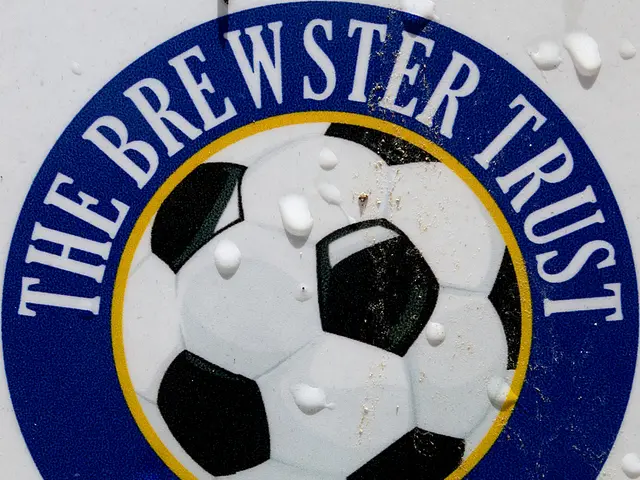Illegal betting platforms utilized by 20% of Belgium's gamblers lead to a decline in gaming revenue
In the heart of Europe, the Belgian gaming industry is grappling with a unique set of challenges as it navigates the impact of the COVID-19 pandemic and the rapid pace of technological advancements.
Land-based sports betting remained the top source of revenue, generating €123.6 million (US$132.64 million), but the gaming industry experienced a 17.8% drop in gross gaming revenue (GGR) due to COVID-19 restrictions on land-based gaming venues. The total revenue for the 2020-21 fiscal year was €969.1 million (US$1.04 billion), with a split between online and retail gambling at 61.5% online and 38.5% retail.
Online gambling, responsible for €595.6 million (US$639.25 million) of the total revenue, saw a 27.9% year-on-year increase. One in three online advertisements Belgian consumers see is from illegal platforms, and one in five consumers plays on an illegal website, according to Kansspelcommissie. To combat this, the Belgian Association for Gaming Operators (BAGO) is advocating for improved policing of illegal online gambling websites.
The online casino segment accounted for 46.6% of the total online revenue, with online slot machines generating €156.8 million (US$168.26 million) in revenue, an increase of 26.3% year-on-year. Sports betting revenue rose 27.1% to €161.2 million (US$173 million).
As the industry evolves, concerns regarding online gambling regulation in Belgium centre on the need to protect players effectively, ensure licensing compliance, and respond to new challenges such as cryptocurrency use. BAGO advocates for regulatory improvements primarily to support the growth and sustainability of the legal gambling market, improve player protection, and adapt to emerging trends.
Key points include:
- Player protection and responsible gambling: Belgium enforces a minimum gambling age of 21 and has strong measures to combat gambling addiction and fraud. Nevertheless, there is ongoing pressure to enhance protections, especially with the rise of new gambling formats and technologies.
- Licensing and market regulation: Belgium’s Gambling Commission strictly regulates all operators, requiring a license to operate legally. However, operators and associations like BAGO see a need to streamline and clarify licensing rules to foster a healthier competitive environment and reduce illegal gambling activity.
- Cryptocurrency challenges: The rise of crypto gambling poses regulatory difficulties due to the decentralized, harder-to-track nature of crypto transactions. Belgian authorities are working on requiring crypto casinos to comply with anti-money laundering and know-your-customer regulations, but the sector remains complex and demands updated regulatory approaches.
- Taxation and market sustainability: The current tax framework imposes rates on gross gaming revenues and winnings, with some ambiguity in taxation of gambling profits for frequent players. BAGO urges clear and fair tax structures to ensure the viability of operators legally serving Belgian customers.
BAGO feels that a complete ban on gambling advertising might be counterproductive. Health officials have stated that "0.2% to 0.9%" of the population might succumb to gambling addiction. The prevalence of problematic alcohol use in Belgium is 5.9%.
These efforts reflect a consensus that while Belgium has a robust regulatory system, continuous modernization is necessary to maintain integrity, consumer protection, and industry development.
The Belgian Association for Gaming Operators (BAGO) is advocating for improved policing of illegal online gambling websites, particularly those offering casino-and-gambling services, due to the significant revenue generated and the growing concern about unregulated platforms. In the ongoing modernization of the Belgian gaming industry, addressing the challenges posed by cryptocurrency use in casino-and-gambling transactions is a key priority for BAGO.




